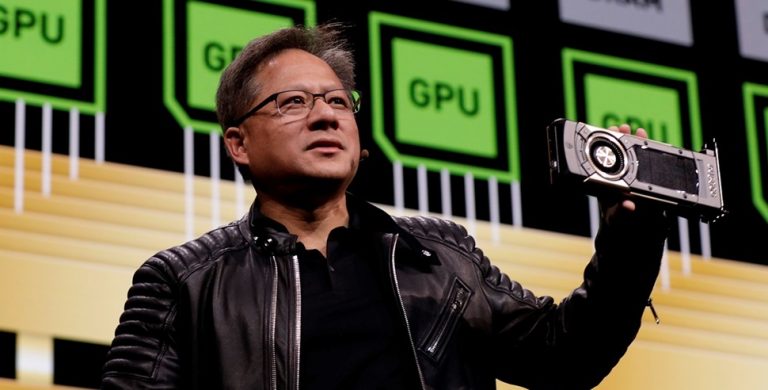
In a dramatic U-turn that underlines the complex dance between political power and corporate influence, the U.S. government has pulled back from its plan to block Nvidia’s high-performing H20 HGX GPU exports to China, following a high-level dinner between President Donald Trump and Nvidia’s CEO Jensen Huang.
The meeting, held at Trump’s Mar-a-Lago estate, came with a $1 million admission fee and is now being cited as the pivotal moment that altered the course of what was to be a new round of tech restrictions against China.
NPR, citing two sources familiar with the matter, reports that the Trump administration had been preparing for months to halt exports of the H20 GPU — Nvidia’s most powerful AI chip still legally sold to Chinese customers. That plan was expected to come into effect this week, pre-empting even the more comprehensive restrictions under the Biden-era AI Diffusion Rule, which is set to kick in on May 15.
Register for Tekedia Mini-MBA edition 17 (June 9 – Sept 6, 2025) today for early bird discounts. Do annual for access to Blucera.com.
Tekedia AI in Business Masterclass opens registrations.
Join Tekedia Capital Syndicate and co-invest in great global startups.
Register to become a better CEO or Director with Tekedia CEO & Director Program.
But following the tête-à-tête over an exclusive dinner table, Nvidia reportedly committed to investing heavily in U.S.-based AI infrastructure, a gesture that appears to have swayed the administration’s position.
Trump’s $1 Trillion AI Vision Meets Nvidia’s Billion-Dollar Pivot
The sudden about-face underscores a broader political undercurrent — the Trump administration’s quest to cement the U.S. as the undisputed leader in artificial intelligence, and the role corporate giants like Nvidia play in achieving that goal. Trump may have seen an opportunity to strengthen domestic tech capacity without fully alienating industry players worried about lost Chinese revenue, by securing a pledge from Huang to pour money into American AI data centers.
Still, the optics are unmissable: a $1 million dinner with the president, followed by a policy reversal that benefits one of the world’s most powerful chipmakers.
Nvidia, which reportedly sold $16 billion worth of H20 chips to Chinese firms in the first quarter of 2025 alone, faces a significant setback if fully blocked from the Chinese market. The H20 was specifically designed to comply with existing export thresholds to China, offering a tailored solution that squeezed maximum performance under strict controls. Yet even that strategic maneuver was at risk under the proposed ban.
The company’s balancing act between adhering to national security demands at home and preserving its lucrative Chinese business has become increasingly difficult to maintain.
At the center of this geopolitical tug-of-war is the Biden administration’s AI Diffusion Rule, a sweeping regulation that will bar the sale of virtually all advanced U.S.-made AI processors to China and other high-risk nations starting May 15. The rule goes beyond the conventional metric of processing power by introducing nuanced controls that consider both volume and end-user intent.
The regulation includes exceptions under the Low Processing Performance (LPP) clause, allowing U.S. firms to sell a limited number of GPUs to countries outside the “trusted” Tier 1 circle of 18 allies. But China, being categorized as high-risk, is specifically excluded from such exceptions. All AI processor exports to China require a license, and even then, the U.S. government’s default stance is denial.
This effectively locks Chinese firms out of the American AI hardware ecosystem — at least on paper.
For Nvidia, there are multibillion-dollar monumental stakes. With $16 billion in H20 sales to China in Q1 alone, the company is caught between two political currents — one pushing for national security and tech sovereignty, the other desperate not to lose market share to Chinese startups or non-U.S. suppliers like Huawei.
The uncertainty now revolves around the fine print. It remains unclear whether the Trump administration’s decision to ease back on the export ban means Nvidia can continue H20 shipments only until May 15 or beyond that date. If the exemption is extended past mid-May, it would likely require the administration to override the AI Diffusion Rule, scrap it entirely, or carve out special licenses for Nvidia — potentially setting off another round of backlash in Washington.
The timing and setting of the policy shift have already sparked quiet criticism in diplomatic and security circles. While the Trump administration has long touted its America-first approach, critics may argue that bending the rules after a $1 million dinner dilutes the credibility of its tech crackdown on China.
For now, though, the administration is framing the move as a strategic win with rhetoric such as ‘Nvidia stays onshore, jobs are created in U.S. data centers, and the broader goal of domestic AI dominance is preserved.’ However, while the decision means that Nvidia has dodged one export bullet, another clear winner is China, which is accelerating efforts to get ahead in the AI arms race.



